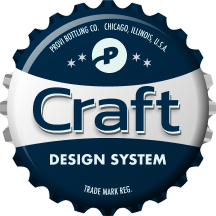Link
The Link component is used to navigate to another page.
Component
LinkStorybook
Storybook - Link DocumentationFigma Demo
Guidelines
Variations
Links are offered in two basic sizes based on type:
- sm (14px)
- base (16px)
There are three main variations of links:
- Primary: Used anywhere a link is needed to navigate a user to another page or section. They must include either a leading or trailing icon, but not both. It should remove the underline for the active or pressed state as a visual indicator to the user that they are actioning the link.
- Secondary: Used for main navigation areas such as the global nav menu.
- Tertiary: More discoverable and used when a link doesn’t need to be as prominent, such as breadcrumbs.
Usage
- Hierarchy:
- Use the base size primary link in the majority of cases.
- Use the sm size where space is tight or if the surrounding content is also using smaller component variants.
- Within main navigation areas, secondary links will generally use the base size on large breakpoints and the sm size on tablet/mobile breakpoints. Regular and semibold treatments within each size help to create the necessary hierarchy.
- Use tertiary links for discoverable content where navigation is an option but not a necessary step for the average user. Examples include breadcrumbs or links to additional product details.
Accessibility
- Use built-in
hrefover JavaScript to navigate.
Content
- A link’s label should set expectations about where it will take the user. Consider descriptive labels such as “View all invoices” instead of a more generic “View all.”
- If a link cannot be descriptive for some reason, additional context must exist so that users know where the link will take them.
Component Specs
API
class:
string| Default:undefined
Extra classes provided to the component.disabled:
boolean| Default:false
Disables the link.dynamicSize:
boolean| Default:false
Dynamically changes the size of the link based on the screen width.href:
string| Default:#
The URL the link goes to.label:
string| Default:undefined
The text of the link.iconAfter:
typeof SvelteComponent| Default:undefined
The icon to use after the link.iconBefore:
typeof SvelteComponent| Default:undefined
The icon to use before the link.nowrap:
boolean| Default:false
Prevents the link from wrapping.semibold:
boolean| Default:false
Used for secondary links that need to be more prominent, such as the category in a navigation panel.size:
'sm' | 'default'| Default:'default'
The size of the link.testId:
string| Default:undefined
The test id of the component.variant:
'primary' | 'secondary' | 'tertiary'| Default:'primary'
The variant of the link.
Example
<script>
import { Link } from '@getprovi/craft-svelte';
import { PersonSolid, ChevronRight } from '@getprovi/craft-svelte-icons';
</script>
<Link href="#">Primary</Link>
<Link href="#" variant="secondary" size="sm">Sm Secondary</Link>
<Link href="#" variant="tertiary">Tertiary</Link>
<Link href="#" semibold>Semibold</Link>
<Link href="#" iconBefore={PersonSolid}>Icon Before</Link>
<Link href="#" iconAfter={ChevronRight}>Icon After</Link>Types
interface Props extends HTMLAnchorAttributes {
disabled?: boolean;
dynamicSize?: boolean;
iconAfter?: typeof SvelteComponent | undefined;
iconBefore?: typeof SvelteComponent | undefined;
label?: string;
nowrap?: boolean;
semibold?: boolean;
size?: 'sm' | 'default';
testId?: string | undefined;
variant?: 'primary' | 'secondary' | 'tertiary';
} Craft Design System
Craft Design System